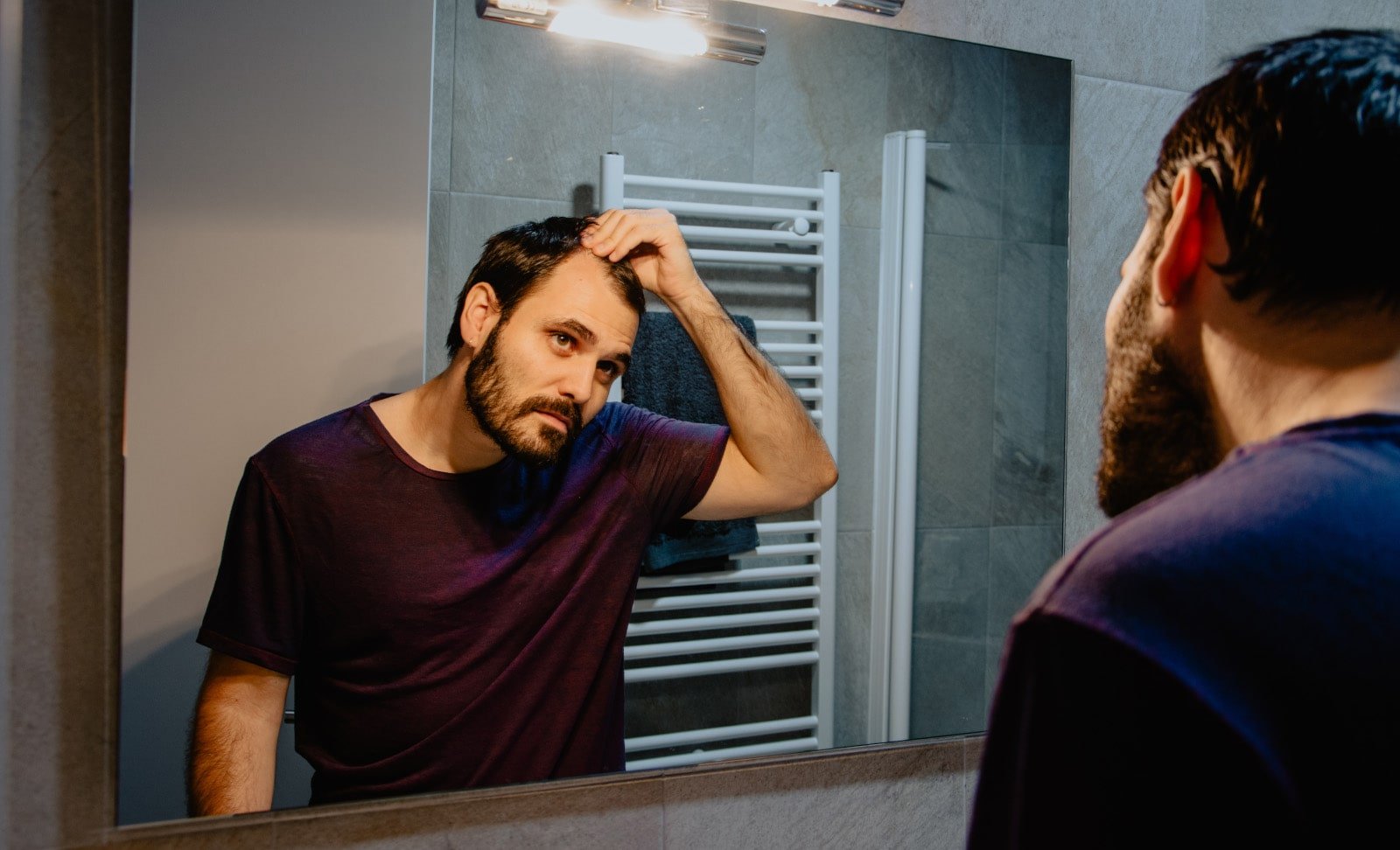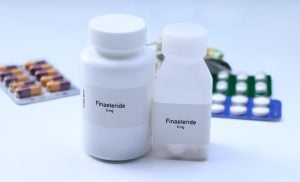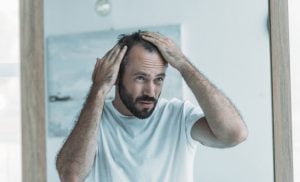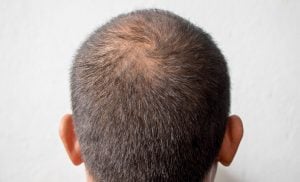Hair loss: a problem faced by millions of people around the world. As of yet, there is no cure for it. However, there are some hair loss solutions to help restore growth, with one of them being the medication Finasteride.
What is Finasteride?
Finasteride isn’t primarily a hair loss treatment – it’s often instead prescribed to treat an enlarged prostate. However, it is also used as a treatment for hair loss. It comes in tablet form, and it usually takes around six months for the medication to work. So, what about Finasteride on the NHS? Can you get Finasteride on the NHS?
Can Finasteride Be Prescribed on the NHS?
That completely depends on what you are using it for. If you have benign prostate enlargement, then yes – you can get Finasteride on the NHS. However, the same cannot be said if you want Finasteride for hair loss. In this case, you can only get Finasteride as a private prescription, and you’ll need to pay the full cost of the medicine.
How Much Does Finasteride Cost?
NHS prescriptions all cost £9.65 (as of 2023). So, if you’re getting Finasteride for an enlarged prostate, it will cost you that much. However, if you want a private prescription for Finasteride to use as a hair loss treatment, that cost is slightly different.
Fortunately, the cost of Finasteride isn’t too expensive, with the average cost of 28 tablets of Finasteride 1mg being around £15. Of course, that price goes up if you want more tablets or a stronger dosage. The price also changes depending on which pharmacy or clinic you use. Also, you’ll need to pay the price of a private consultation, which is quite expensive and can cost you up to £200. However, this will generally be a one-time cost for the prescription.
Do You Always Need a Prescription for Finasteride?
Yes – it is illegal for Finasteride to be sold without a prescription from a doctor. While it’s best to see your doctor in person with any concerns, you can also get a Finasteride prescription online.
What’s the Strongest Dosage of Finasteride?
Finasteride typically comes in 1mg pills. However, Finasteride 1mg is not enough for everyone, which is why sometimes Finasteride 5mg is prescribed. Keep in mind that Finasteride 5mg may lead to more side effects.
Who Can Use Finasteride for Hair Loss?
Finasteride for hair loss is specifically for men who have androgenetic alopecia, also known as male pattern baldness. However, there are some reviews and studies looking into the potential efficacy of treating hair loss in women. At this moment in time, though, Finasteride is only really prescribed for men with hair loss.
How Does Finasteride Work?
Finasteride works for male pattern baldness due to its ability to block levels of Dihydrotestosterone (DHT). DHT is a sex steroid and hormone which is primarily responsible for the growth of body hair. In turn, men experience an increase in scalp hair over time. Keep in mind that this treatment takes at least four months to become visible! Also, the patient needs to keep taking Finasteride for it to keep working – if you stop taking Finasteride, your hair will return to how it was before.
The Effectiveness of Finasteride on Hair Loss
A pilot study in Japan [1] showed that Finasteride worked as a hair loss treatment for multiple patients. In fact, oral Finasteride led to excellent or good results in 59.5% of patients, which is remarkable. As such, Finasteride is definitely effective for certain patients. Of course, that doesn’t include everyone – around 40% of those patients didn’t experience good or excellent results. The best way to see if Finasteride will work for your hair loss is to try it yourself.
What About for an Enlarged Prostate?
If you’re getting Finasteride on the NHS for an enlarged prostate, the results are just as effective for that treatment. While it takes around six months to see the full effects, the medication does reduce the size of the prostate over time, relieving symptoms. It’s not a cure, but it does provide a lot of relief to patients. Again – you need to continuously take this medication for the effects to last.
What are the Finasteride Side Effects?
Much like with any other medication, there are side effects associated with Finasteride. Here are the common symptoms that you generally don’t have anything to worry about (but speak to your doctor just to make sure):
- Sleepiness
- Sneezing
- A lowered sex drive
- Inability to maintain an erection
Of course, some of these symptoms will affect your life more than others. If your sex drive is lowered and is affecting your personal life, it’s best to speak with your doctor to see if there are other options. It’s worth noting that these common symptoms often disappear once you use Finasteride.
There are also certain symptoms that require you to get checked immediately. If you show any of the following symptoms, seek medical attention as soon as you can:
- Chills/shivering
- Cold sweats
- Dizziness
- Sudden weight changes
- Skin rash
- Bloating
- Swelling
- Breast changes
- Skin redness
These side effects are not pleasant. They don’t affect everyone who takes Finasteride, but they can pose a threat to your health. Keeping track of how you feel and whether you exhibit any symptoms during your time taking Finasteride is a good idea.
Should You Take Finasteride for Hair Loss?
Despite not being able to get Finasteride on the NHS, there are still a bunch of reasons to try this oral medication. If you are an overall healthy man who has experienced hair loss and other treatments haven’t seemed to work, Finasteride could be a good option for you. It’s always best to speak to your doctor about it.
Results from Continuous Finasteride Use
Seeing is believing. You can find many before and after photos of men online who had significant hair growth after taking Finasteride.
Is Finasteride Worth it?
Many men go through male pattern baldness. Despite how common it is, it can have a really negative impact on a person’s confidence. Finding a medication that can help restore your confidence is definitely worth it. After all – confidence is everything. When you feel comfortable in your skin, that improves every area of your life, and both your personal and work life will improve. So, even though Finasteride on the NHS isn’t available for hair loss purposes, the effort of going through a private consultation is more than worth it to many men in the UK.
Finasteride vs. Minoxidil
If you’ve heard of Finasteride, you’ve likely heard of the other popular medical treatment for hair loss: Minoxidil. While Finasteride is an oral treatment, Minoxidil is usually applied topically (although you can also find it in pill form). In terms of effectiveness, it’s about the same as Finasteride, with Minoxidil working for two-thirds of men with male pattern baldness. Much like with Finasteride, Minoxidil only works for as long as you take it; if you stop taking the medication, your hair will no longer benefit from the additional growth.
The biggest difference between Finasteride and Minoxidil is that you don’t need a prescription for Minoxidil – you can simply buy it over the counter. However, much like you can’t get Finasteride on the NHS for hair loss, you also cannot get Minoxidil on the NHS; you’ll have to pay for it in full.
Are There Other Hair Loss Solutions?
While Finasteride is a good solution for men experiencing hair loss, it’s not the answer for everyone. It doesn’t work for some men. On top of that, it’s not a good option for women or those experiencing hair loss due to another factor than Androgenetic Alopecia.
Another great solution to hair loss is hair transplants. Yes – they are much more expensive than a one-month supply of Finasteride, but the results last a lifetime. Plus, results are very natural thanks to the development of the FUE hair transplant. This procedure involves grafting healthy hair follicles from a donor area and then placing those follicles into the balding/thinning section. After around six months, you’ll notice new growth coming through, with full results seen after twelve months.
The Takeaway
Finasteride is an effective medication for hair loss. While the answer to “Can you get finasteride on the NHS?” is a definite no if you’re using it for hair loss, it can still be worth getting a private consultation to enjoy the benefits of this medication. Also, if Finasteride is not for you, there are other options, including Minoxidil and hair transplants. There’s also the option of embracing the bald look.
Want to learn more about hair transplants? You can see just how effective this treatment option is by looking at our patients gallery. As you’ll see, patients experience beautifully natural results thanks to our top surgeons and the use of modern technologies. When you choose HS Hair Clinic, you know you’re in expert hands.
Sources:





